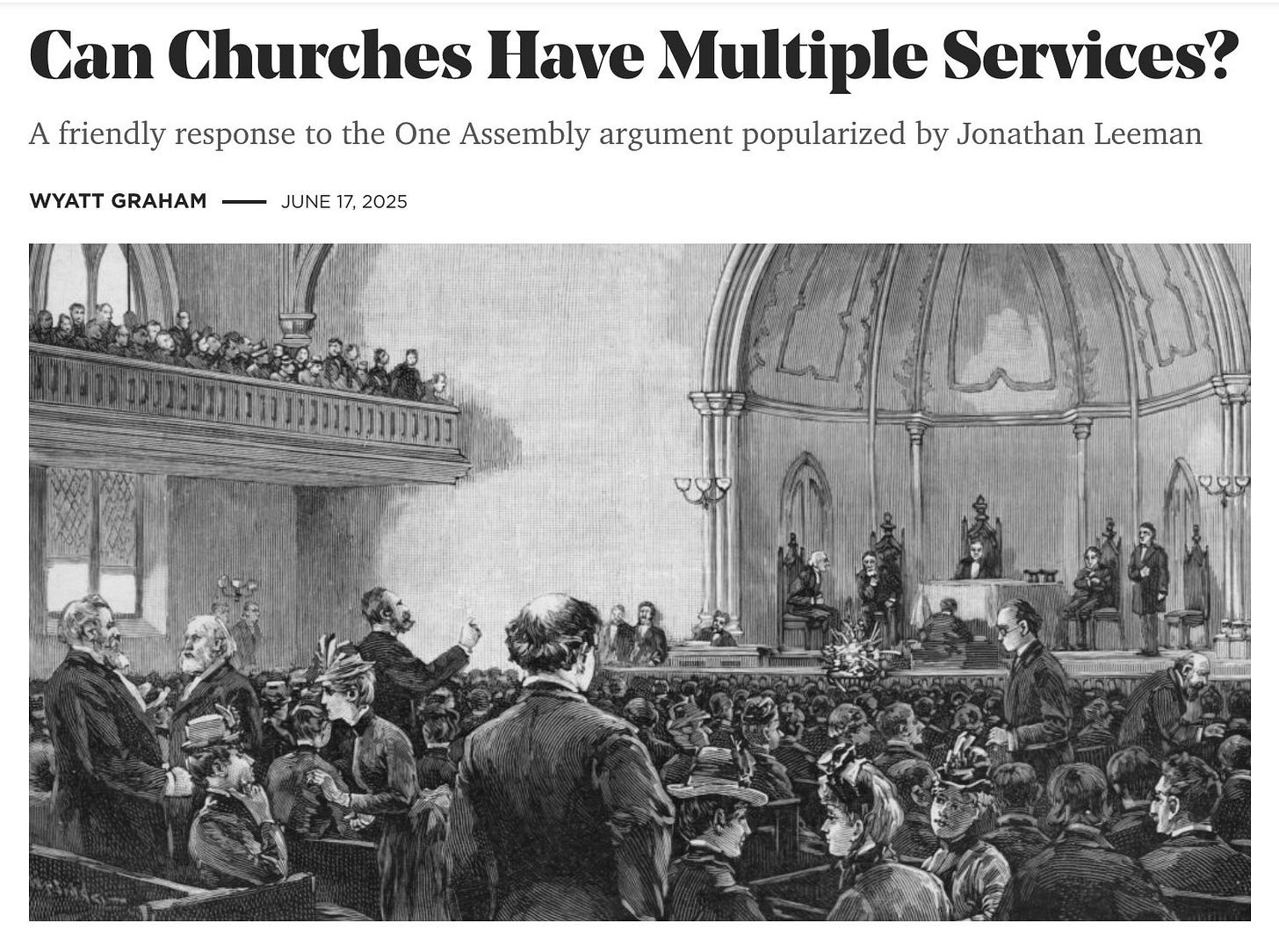On Prudence and Dogma
A Reflection on Multi-site vs. Single Assembly Views of the Church
I believe it is wise for a church to gather together in one place at one time. For this reason, I prudentially support a single-assembly model for churches.
However, in my recent article on multi-site churches, I argued that the biblical term ekklesia (church) and its biblical usage do not require us to affirm Jonathan Leeman’s conclusion that:
“Multisite and multiservice churches repudiate the Bible’s definition of a church, redefine what a church is, and so reshape the church morally. And all that means these models pick a fight with Jesus” (One Assembly, 35).
My argument stems from my understanding of how the Bible, particularly the apostles, defines and qualifies the term "church."
Part of my concern here also has to do with the nature of doctrine. Many truths in the Bible bind our consciences. We must believe them, or else we sin. The language that Leeman uses above is conscience-binding language.
I am not convinced that the One Assembly doctrine, in its particular ontological conclusions (two services mean two churches) or in its specific accusations—that multiservice and multi-site churches fight against Jesus—can be derived from or verified by Holy Scripture, our infallible rule of truth.
I further find it implausible because Christians in years past, whether the Nicene Fathers or the Reformers, have defined the church as all the saints united to Christ by faith. Particular local churches, then, are those expressions of the church in one place, marked by Word, sacraments, and keys (discipline).
On the other hand, if we posit that the church or ekklesia in the New Testament refers primarily to gathered people in one place, and if we further posit that this definition of a local assembly (a church) does not share the same definition as the universal body of Christ (i.e., the Church), then we, I fear, divide the one church, the mother of us all.
And we then can (not must) open the door, as the One Assembly doctrine does, to binding the conscience of other churches who do not practice their approach. And thus we might be tempted to say of multi-site proponents, they “repudiate the Bible’s definition of a church, redefine what a church is, and so reshape the church morally. And all that means these models pick a fight with Jesus” (One Assembly, 35).
I cannot find the premises for that dogmatic conclusion in my Bible. So I will exercise a judgment of charity toward others on how they pastorally and prudentially order their worship.




I was a little surprised that your rebuttal skipped over what seems to me to be the most obvious rebuttal. The Bible consistently speaks of “the church in (fill in the name of the city or area). It is ridiculous to argue that the number of people in the “Church in Ephesus” could have all met together in one place. The same is true for “the church” in Rome, Thyatira, Colossi, etc.